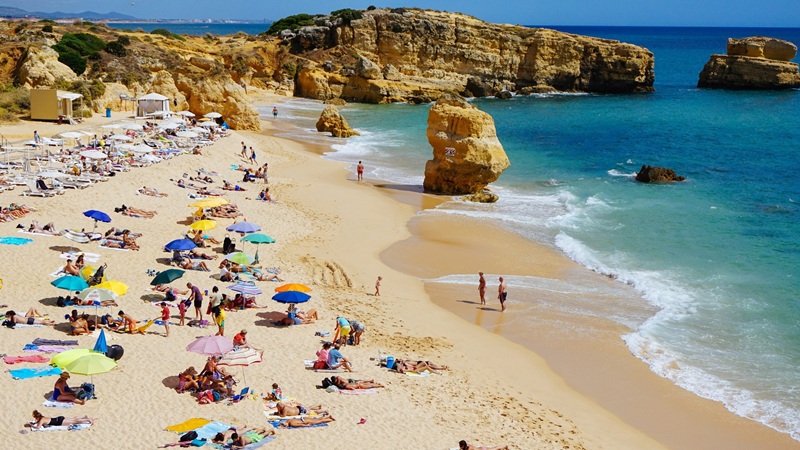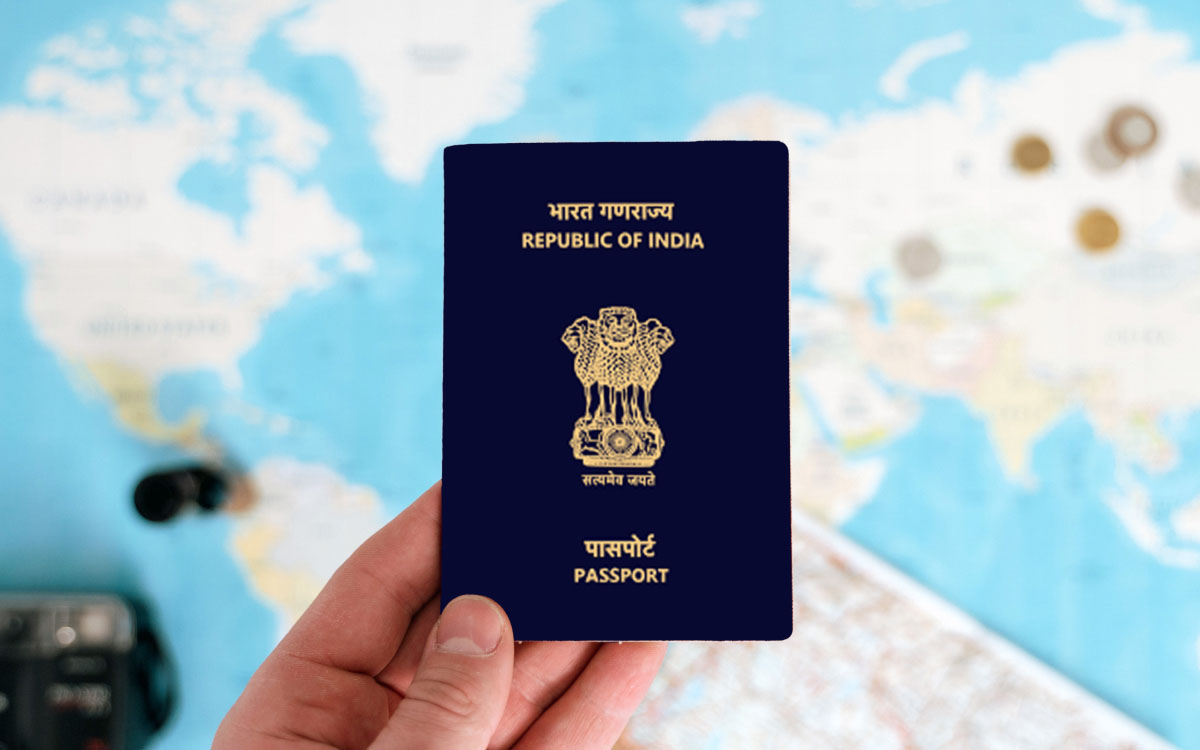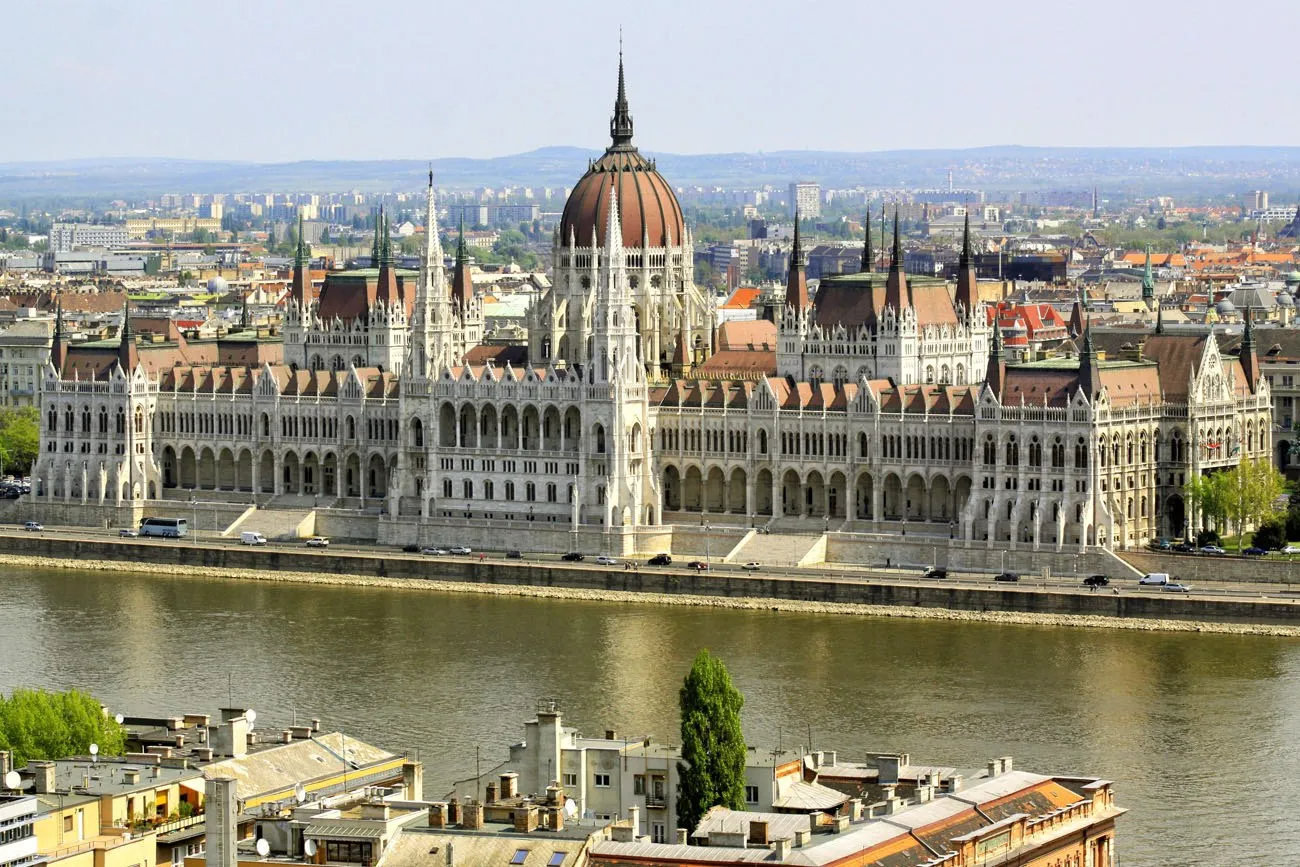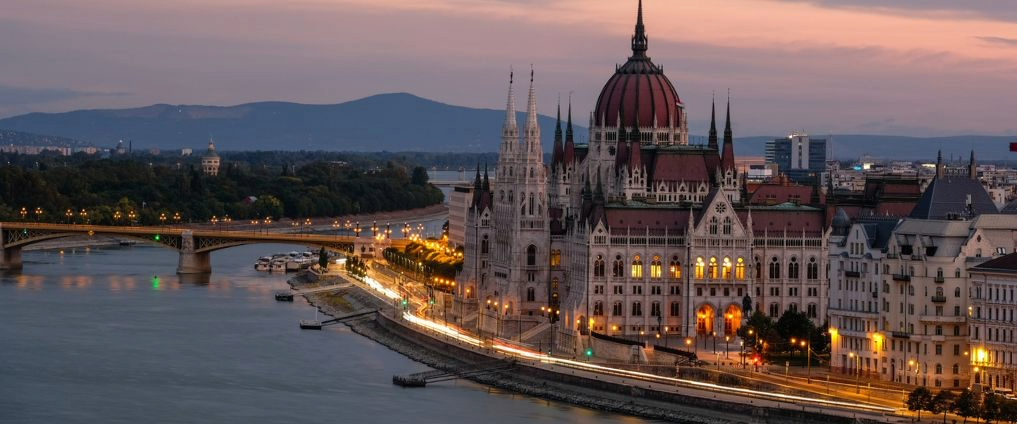Located on the southwestern fringe of Europe, Portugal has been growing as not only one of the most attractive touristic but also one of the most promising countries to immigrate to Portugal in recent years. With landscapes of amazing beauty, comfortable climate conditions, and historical and cultural heritage, it has received many people who have been trying to widen their horizons as professionals or retired, students, and even investors. Because of the strategic location, it offers a blend of Mediterranean and Atlantic influences unique for people who wish to stay in a quiet but vibrating environment.
Portugal is highly accredited for its quality of life, often reflected in the cost of living, which is seen to be pretty much cheap compared to other European nations. Compared to Lisbon and Porto, which may be a bit expensive when it comes to housing, many areas away from the main cities have quite affordable housing and a very easy-going lifestyle. The very good healthcare, public services, and safety in general make this country an ideal choice both for families and retirees. That’s a big plus, added to the general positive atmosphere-the reason why Portugal is increasingly appealing both for temporary and permanent residency.
Another important factor drawing immigrants to the country is that Portugal enjoys a warm climate. It has mild winters and hot summers, which boast around 2,800 hours of sunshine annually, making it an ideal location for outdoor sports lovers who enjoy activities like hiking, surfing, and cycling. From the sandy beaches of the Algarve to the lush mountains of the north, Portugal’s natural beauty provides a wonderful backdrop to everyday life. This sunny, temperate weather is often a major selling point for people moving from colder climates. In addition to the climate, Portugal offers a rich cultural history deeply embedded in its cities and communities.
From the Age of Exploration to its well-thought architectural, musical, and cultural festivals, the nation represents times. History is overrepresented by famous cities like Lisbon, Porto, and Coimbra, which boast the core of art and great customs that stand aside from the crowd. Whether wanting an immersion into a truly European lifestyle or into the real traditional culture that keeps in balance family, community, and its values, Portugal brings in a rare combination: living modern and keeping an unchanged background. For those looking to immigrate to Portugal, these aspects are incredibly appealing.
Other very attractive features for immigrants include the safety of Portugal and its low crime rates. Having a low crime rate compared to other European countries, Portugal is a secure environment both for individuals and families. Whether in the busy cities or in the quiet, rural areas, peacefulness characterizes this country. The search for peace of mind in their move would make Portugal, considered one of the safest countries in the world, a priority choice for those who wish to immigrate to Portugal. Finally, immigration policies and programs in Portugal attract different heads of people, starting from skilled professionals down to retirees and investors.
It provides several types of visa categories, be it the Golden Visa for residency in exchange for investment in real estate or any other kind of investment allowed by law. Another option could be the D7 Visa targeted at retirees or people with passive income that would make a living in Portugal quite easy. It is also very immigration-friendly, has excellent infrastructure, and offers modern amenities, which altogether make Portugal an ideal choice for anyone relocating to begin a new chapter in their lives.
Immigrate to Portugal Pathways
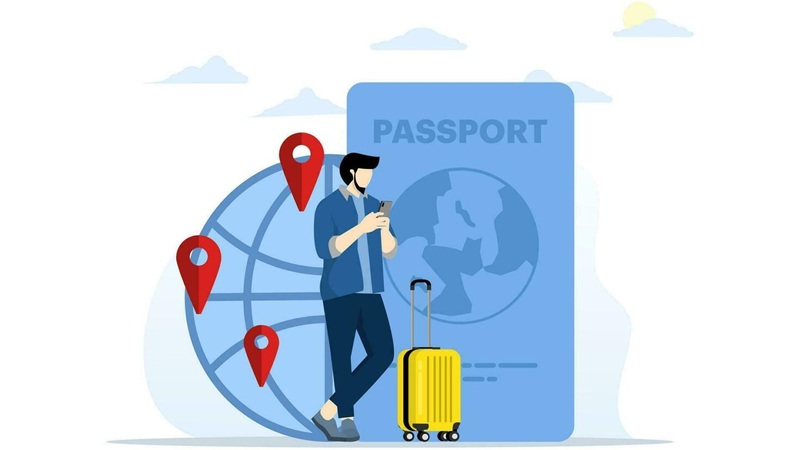
Golden Visa Program
Portugal’s Golden Visa is a popular immigration pathway for non-EU citizens, offering residency through investment. The program allows applicants to qualify by making investments in various sectors, such as real estate, business creation, or other eligible areas like research or renewable energy. The most sought-after options, up to February 2025, are an investment of at least €500,000 or €350,000 if the house is to be renovated in certain areas.
An investor can also qualify with a minimum investment of € 350,000 in scientific research or € 250,000 to preserve cultural heritage and/or create at least a minimum amount of jobs. This flexibility in investment makes the Golden Visa a very attractive option for those seeking to immigrate to Portugal while contributing to the economy of Portugal.
Key advantages under the Golden Visa include residence in Portugal, with only the minimum physical presence required-just seven days per year in the first five years. After five years, one can apply for permanent residency and, after six years, citizenship. The program also gives residency for family members, including a spouse, dependent children, and even dependent parents. Golden Visa holders’ profit from the Portuguese advantageous tax system, mainly the Non-Habitual Resident tax program with great advantages in taxation, for periods of up to ten years. From residency to freedom to live, work, and travel across the EU, it is unquestionably the best visa for global investors and their families alike.
D7 Visa Passive Income Visa
Portugal D7 Visa is targeted at people who can prove a stable passive income via such sources as investments, pensions, or remote work. The Retirement or Passive Income Visa allows retirees or people with foreign-earned income to live in Portugal without being obliged to seek work in the country. As of February 2025, a single applicant is required to show a minimum annual income of €8,460 plus an additional €4,230 for each dependent. Applicants can prove these financial needs by means of pensions, rents, dividends, or income acquired through remote work. The D7 Visa allows applicants to live and work remotely in Portugal, offering the flexibility to explore a new lifestyle without the constraints of a traditional work visa.
Once approved, the D7 Visa provides a residence permit valid for two years, renewable for an additional three years. The permit after five continuous residences allows holders to apply for permanent residency, and application for Portuguese citizenship may be given after six years. The family is also included in this visa, allowing applicants to bring with them their spouses and dependent children. Aside from financial demands, the applicant will also provide the proof of accommodation in Portugal with health insurance coverage. This visa offers an easy pathway to permanent residency and citizenship, as long as one can support oneself with adequate means without entering the local labor market.
Work Visas
There are various types of work visas for working in Portugal. These are available for certain categories of professionals. The most sought after include those for qualified professionals and entrepreneurs. From February 2025, candidates need to have a job offer confirmed by an employer in Portugal and meet the qualifications for that particular job.
For skilled workers, work visas usually require higher education degrees or professional specializations in such fields as technology, healthcare, or engineering. The country is urgently looking for professionals in high demand, including IT, health, and engineering fields, and so it would be easier to get a work visa in these areas of profession. Application – Documentation regarding the job offer, qualifications, and in some cases, a criminal background check is required.
The State also offers the StartUp Visa to attract entrepreneurs to create innovative enterprises within its borders. The eligible business plan should be presented together with financing obtained from an accredited Portuguese incubator or investor. It is a residence visa, through which one can set up their businesses in Portugal while staying there. An application must include a business plan in detail, along with proof of the financial ability to support a business. When awarded, this visa allows family reunification, where one may bring along one’s spouse and children. After five years of residency, holders can apply for permanent residency-a strong option for entrepreneurs who wish to set up in Portugal’s vibrant startup ecosystem.
Student Visas
Because of its high-profile education and affordable living expenses, Portugal is increasingly becoming attractive for international students. Every non-EU student in Portugal will have to apply for a student visa. A student visa requires documented evidence of acceptance into a licensed Portuguese institution, financial means that provide for themselves, and accommodation. At the time of application – February 2025- students should show proof of at least €6 000 per year to cover their living expenses.
A student visa permits a stay of up to one year and can be renewed annually, provided the student remains enrolled in their course. Public universities, like the University of Lisbon and the University of Porto, offer a great variety of programs in English, thus being one of the most attractive destinations for students from all over the world.
Students with a Portuguese student visa are allowed to change their status of stay into a work visa upon graduation, provided they find a job in the country. A graduate can apply for a job seeker visa that allows them to stay in Portugal for up to six months in search of a job. The moment they get an offer of a job, they will be allowed to apply for a work visa and start the route to permanent residency.
Also, Portuguese universities are closely linked to international companies and industries, hence providing a wider scope for students in terms of job opportunities in Portugal and throughout Europe. Thus, Portugal is also an excellent choice for students who would want to build a career and live a life in Europe.
Family Reunification
Family reunification is provided for under the immigration system of Portugal, which enables a person who has obtained a residency permit to have their family members join them within the country. Family reunification includes the spouse, dependent children, and dependent parents of the main visa holder. From February 2025, family reunification applicants will also have to submit documents proving the relationship, such as a marriage certificate for spouses and birth certificate for children. The main visa holder should also prove the ability to support their family members during their stay in Portugal. Upon approval of the application, family members will be granted residency permits to live and work in Portugal.
Family reunification is thus an important aspect of the immigration system that ensures the reunification of families even as one moves for work, investment, or study in Portugal. The reunification process is also uncomplicated, as applicants are simply required to show their financial and documentary requirements. Family members of a main visa holder have equal rights to residency, health, education, and even seeking of employment.
After five years as residents, both the primary visa holder and their family members have the right to apply for permanent residency, and after six years, application to Portuguese citizenship is an option. This makes Portugal a very attractive destination for those families looking to relocate together, with clear pathways to long-term residency and eventual citizenship.
Residency and Citizenship of Portugal
Steps to Obtain Permanent Residency
Permanent residence in Portugal is taken into consideration after certain periods, which have to be continuously spent in the country with legal status. The general rule is that permanent residence in Portugal could be obtained after five continuous years of legal residence in Portugal with a visa, as of the end of February 2025. It should have in his/her possession the respective visa and satisfy basic requirements such as proof of income, health insurance, and accommodation. He also needs to demonstrate that he has integrated into Portuguese society by showing a basic level of proficiency in the Portuguese language. Usually, this means passing an A2 level test of Portuguese language; there are some exemptions.
When the five years have been completed, an application for permanent residency can be submitted to the Portuguese immigration authorities. This process is supported by the provision of documentation, which includes proof of residency, employment, financial stability, and health insurance. Note that permanent residence allows the person to stay in Portugal without any limitations, to work, but doesn’t give him or her the right to Portuguese citizenship automatically. After permanent residency, an applicant can apply for Portuguese citizenship, which opens the way to dual nationality and access to other benefits as a European Union citizen.
Pathway to Portuguese Citizenship and Dual Nationality
After five years of residence in Portugal, one can apply for Portuguese citizenship, provided certain conditions are met. Besides residence, one has to show integration into Portuguese society, basic knowledge of the Portuguese language at A2 level or higher and not be a threat to public security. From February 2025, another addition to that will be a criminal record check in Portugal and their country of origin. After fulfilling these criteria, he can apply to the Portuguese authorities.
The advantage of dual nationality in Portuguese citizenship is that one can retain their nationality of origin and then become a citizen of Portugal. This dual nationality is in high demand because it confers all the rights and privileges of an EU citizen, including the right to reside, work, and travel freely in the European Union.
This is in addition to the manifold rights that come with obtaining Portuguese citizenship, including healthcare and social security benefits, as well as the right to vote both nationally and in European elections. Once citizenship has been granted, one can apply for a Portuguese passport, which allows visa-free travel to many countries worldwide, further facilitating global mobility for those who make Portugal their home.
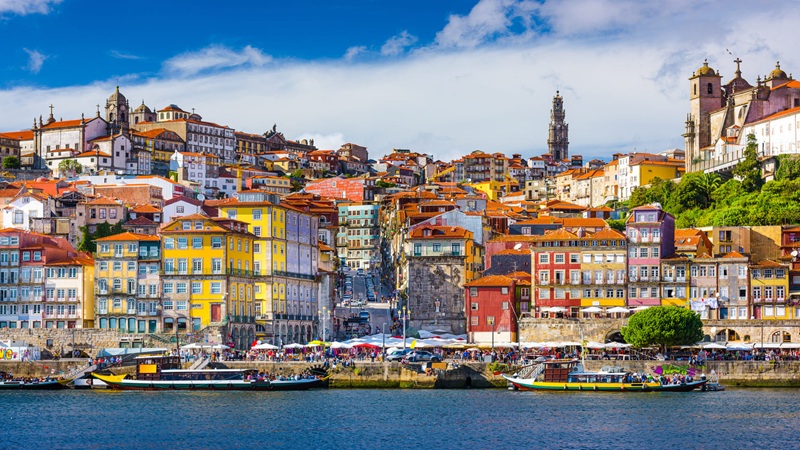
Cost of Living: Housing, Transportation, Healthcare, and Everyday Expenses of Portugal
Compared to many Western European countries, Portugal has a relatively low cost of living and is therefore popular among expats. Prices are higher in big cities like Lisbon and Porto; for example, the rent of a one-bedroom apartment in the city center can range from €1,000 to €1,500. In smaller towns or villages, rental prices can go as low as €500 to €800 per month.
Utilities, which include electricity, heating, water, and garbage, cost in the range of €100-€150 per month, while internet services usually cost around €30-€40. Public transport in big cities is reasonably priced; for example, it would cost around €42 for a monthly metro and bus ticket. If you have a car, the price of petrol is around €1.80 per litter, and there may be some roads that have tolls depending on route taken.
It has both a qualitative and accessible healthcare system. Portugal residents are entitled to use the public health service, SNS, which is extremely affordable consultations start from about €20 for non-residents. It is also possible to use private healthcare options, where access is much faster, and care more individualized, for consultation fees ranging from €40 up to €100. Generally speaking, groceries and all other products of everyday use are rather cheap. A single person can expect to spend in the region of €200-€250 a month for food and dining out in restaurants costs anything from €12 to €20 per head. Generally speaking, Portugal is a pretty inexpensive place to live, especially considering the quality of life and services available.
Education and Schooling Options for Families
These schools in Madeira offer all types: public, private, and international. Public schools are free for residents and guarantee quality education in Portuguese. However, there are several excellent international schools available for expats and anyone who wants their kids taught under an international curriculum system. Most private and some international schools in major cities, including Lisbon and Porto, teach lessons in English, French, or another language based on the International Baccalaureate, American, or British curricula. Tuition differs among institutions and is normally within the bracket of €4,000 and €12,000 per year.
Higher education in Portugal is equally accomplished, with the University of Lisbon and the University of Porto offering various programs in a wide array of fields such as engineering, business, and technology. Many courses are taught in English, which adds to the country’s attraction. Tuition fees for international students are generally much lower than in other European countries, and many universities have links with international companies, so finding an internship and a job upon graduation should not be very problematic for students. Overall, Portugal offers some very good educational options that meet various needs and preferences.
Cultural Integration: Language, Local Communities, and Lifestyle Tips
Generally speaking, cultural integration in Portugal is easy, and locals are very welcoming, especially in larger cities where a great deal of the population speaks English. However, learning Portuguese is crucial for deep integration into the locals, mainly in rural areas where this language is less common. A number of language schools exist that offer relatively affordable courses, and even a basic understanding of Portuguese will greatly enhance your experience. Socially, Portugal is known to be a very friendly and hospitable country, with expat communities everywhere, making finding support networks and making new friends quite easy.
Portuguese way of life is easy-going, and the community-oriented approach makes living in Portugal very amicable. Culture is strong in family life and social life since food accompanies most events and activities. Mingle with locals, participate in festivals, enjoy open areas outdoors, which this country has in abundance, and take in the cultural scene to make yourself at home.
Besides that, there is so much quality-of-life combination from modern amenities to traditional values in Portugal. From the beaches to various hiking routes with breathtaking scenery, outdoor activities are part and parcel of life in Portugal. Whether it’s the pulsating city or the countryside, something is always happening, making your integration into the Portuguese way of life highly rewarding and enjoyable.
Requirements and Documentation
Key Documents Needed for Each Visa Type
Documents required for immigration to Portugal depend on the type of visa for which one is applying. In the case of the Golden Visa, the documents that an applicant needs to attach are proof of the investment made, proof of income, and health insurance. About passive income, retirees and remote workers who apply for the D7 visa will have to show proof of passive income or financial support through pensions, renting activities, or other types. Other documentation, generally needed for every type of visa application, includes a valid passport, a clean criminal background check from the home country and any other country in which the applicant has resided in the last year, and proof of accommodation in Portugal.
An applicant for a work visa will require a job offer from an employer in Portugal, supplemented with the candidate’s qualifications, curriculum vitae, and any other professional license relevant to their field. Family reunification applicants will further require the relationship documents such as marriage or birth certificates, means to support dependants, and health insurance covering all the family members that are supposed to join the main applicant. Additional requirements can be added to each visa type, and it is preferable that, before applying, an applicant goes through guidelines related to the chosen visa.
Application Timelines and Associated Costs
Portuguese visas differ in nature and completeness of application. For example, the Golden Visa usually takes about 3 to 6 months, which depends on the type of investment applied for and how fast the applicant can provide the necessary documentation. The D7 Visa and other residence visas generally take 2 to 4 months to process.
It can take even longer if there’s a need for more documentation or clarification. The cost of the application, well, varies: most applications for a visa will run €150-€500, though further costs can be added with legal advice, translations, and medical examinations. For some cases, like family reunification, additional costs might arise in preparing the documents and translating them. In any case, it is good to prepare for extra costs in addition to what is usually covered.
Advantages of Immigrating to Portugal
Access to the EU as a Resident
The major attractions that lure immigrants to Portugal for residence include, among other things, gaining access to the European Union with a residency visa. Portugal being a member of the European Union, on acquiring a residency visa, gives a person the right to travel and work in any country which is a member of this European Union.
This residency advantage can be highly sought after by many for potential opportunities in career and life across Europe. EU residency will also provide access to health care, education, and the social security union wide. Additionally, as a resident of the EU, one is better placed to draw on programs and funding offered to its residents and businesses for improved career or enterprise development. Tax Incentives and Portugal’s Non-Habitual Resident Program
The Non-Habitual Resident program in Portugal is one of the most important tax advantages for new residents, mainly retirees and high-income professionals. Qualifying individuals under this program pay lower tax rates on income in Portugal and are exempt from foreign income for up to ten years. Some types of foreign income, such as pensions or dividends, may not be taxable. This makes Portugal an attractive option for those who seek to minimize their tax burden while living a high-quality life. The NHR program, together with the relatively low cost of living in the country, makes it a very attractive destination for those who want to enjoy the privileges of EU residency with beneficial tax conditions.
Vibrant Expat Community and Networking Opportunities
Portugal is home to a vibrant expat community, particularly in cities like Lisbon, Porto, and the Algarve, where people from all over the world have chosen to live. This large expat presence fosters a supportive environment where newcomers can easily find advice, social groups, and networking opportunities. There are numerous expat clubs, business networking events, and social gatherings that help ease the transition into Portuguese society. Your job as a professional, or, better said, job opportunities with you as an entrepreneur, it is immense here in Portugal. Moreover, the huge expat network ensures people who can share similar experiences and also give advice become very close friends.
Tips for a Smooth Immigration Process to Portugal
Common Challenges and How to Overcome Them
Probably, one of the biggest issues one may face when immigrating to Portugal is dealing with the bureaucracy and making sure that all the papers are submitted correctly. The process may get complicated, especially when documents are required to be translated, or financial stability needs to be proven.
In order to avoid delays, applicants should be sure about the requirements necessary to obtain a certain type of visa, consulting official resources or using professional help if needed. The other obstacle may be the language problem, which is very real in rural areas. Learning some basic Portuguese or having a translator will greatly ease the process. In addition, cultural differences and adjusting to the pace of life may take time but can be easier by mingling with the locals.
Importance of Legal and Professional Advice
While the process of immigration is simple, it is always good to seek legal or professional advice to ensure that all the requirements are met. Immigration lawyers or consultants can guide you through the process of application for a visa, undertake translation of documents, and complete your application correctly on time. These professionals will also sort out any problems or delays in the process, which may occur at any time in the application process, for your peace of mind and to avoid any complication. Consulting an expert can also help you take the best approach given your particular situation, whether you’re seeking a work visa, family reunification, or residency through investment.
Conclusion
A relocation of persons and families to Portugal may well consist of a variety of available options. With its low living indexes, high quality of living, and friendly culture, Portugal is a very viable destination for both a stay of short and long tenure. The various visa opportunities make it easier for working professionals, retirees, students, and investors to transfer to Portugal and live a life with the advantages provided by an EU country. To begin your immigration journey, it’s essential to understand the requirements, gather the necessary documentation, and seek professional assistance where needed.
For more information on the immigration process or customized guidance, consult with immigration experts or look through government resources to ensure that your relocation to Portugal is as smooth and successful as possible.
source: Portugal Government

